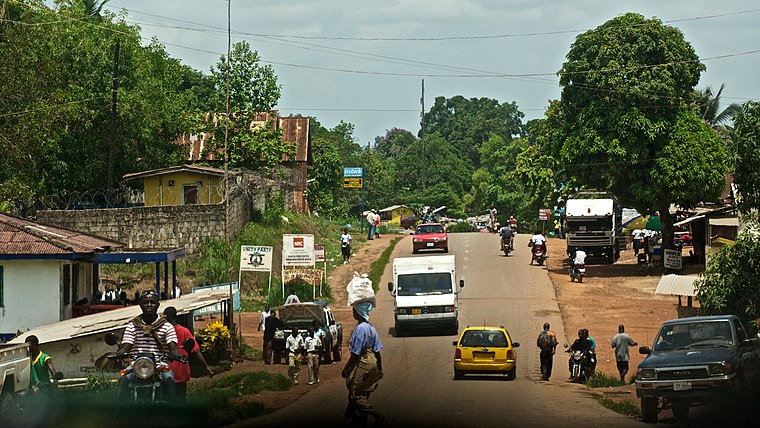Margibi County is now grappling with a severe environmental crisis. The streets of Kakata City are strewn with garbage, and the air is thick with the stench of decaying waste, profoundly impacting the daily lives of residents, including street vendors, motorcyclists, drivers, and pedestrians.
Street vendors, who rely on clean surroundings to attract customers, are seeing their livelihoods threatened. “The filth drives people away,” says Mary Johnson, a local fruit vendor. “Customers don’t want to buy food in such dirty conditions. It’s hurting our business.”
Motorcyclists and drivers are also struggling with the city’s worsening uncleanliness. Potholes filled with trash make navigating the streets increasingly dangerous. “It’s not just about the bad roads anymore,” laments John Doe, a commercial motorcyclist. “It’s about avoiding heaps of garbage that can damage our bikes and cars.”
Pedestrians face similar challenges, with sidewalks blocked by piles of refuse, forcing them to walk on the road, risking accidents. “Walking through Kakata has become a health hazard,” notes Rita Margas, a local teacher. “You have to hold your breath and watch every step to avoid stepping on trash.”
The health implications of Kakata’s filthiness are alarming. Stagnant water in clogged drains and piles of waste create breeding grounds for mosquitoes, increasing the risk of malaria and other vector-borne diseases.
Decaying organic matter is attracting rats and other pests, leading to a rise in diseases like leptospirosis and gastrointestinal infections.
“The unsanitary conditions are a ticking time bomb for public health,” warns Dr. James Carter, a local health practitioner. “We are seeing an increase in respiratory issues, especially among children, due to the foul air. Skin infections are also becoming more common as people come into contact with contaminated surfaces.”
Health professionals in Kakata are raising the alarm, emphasizing the urgent need for immediate action to prevent a full-blown health crisis. “The city needs a comprehensive waste management system,” advises Dr. Cassel, a public health expert. “Proper disposal and regular collection of waste are crucial. Public awareness campaigns about the importance of hygiene and sanitation must also be intensified.”
Local clinics are reportedly overwhelmed with cases of preventable diseases linked to poor sanitation. “Our resources are stretched thin,” says Nurse Philip. “We need support from the government and international organizations to address this issue. If nothing is done, the situation will only get worse.”
Residents of Kakata City are calling for urgent intervention. While community leaders are organizing clean-up campaigns, they insist that these efforts must be bolstered by sustained government support.
“We can’t do it alone,” asserts community activist John Smith. “We need proper infrastructure and consistent maintenance. It’s about the health and dignity of our people.”
The time for action is now, before the filthiness overtaking the city escalates into a full-scale public health disaster.
- Share :



